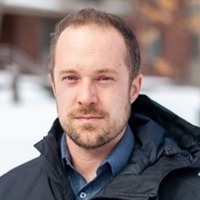BACKGROUND
The Henderson Award is given in the name of Dr. Velyien E. Henderson, a former Chairman of the Department of Pharmacology at the University of Toronto. This award was inaugurated by Dr. John D. McColl, one of the six founding members of the Canadian Association for Research on Drugs (CARD). The Henderson award was originally given by Dr. McColl and his wife Pat, who was a niece of Dr. Henderson, but the Society now sponsors the Henderson Award.
PURPOSE
The award is designed to honour an individual who has made a significant contribution to the discipline of toxicology in Canada.
SELECTION
The suitability of each nominated candidate will be reviewed by the Awards Committee consisting of the Past President (Chair), one Councillor and other ordinary members of the Society nominated by the Past President as required. To ensure that the contribution of each candidate to the discipline of toxicology is appropriately assessed, at least one member of the Selection Committee must have a working knowledge of the area of toxicology in which the candidate is working. When, in the opinion of the Selection Committee, two or more candidates are equally qualified, consideration of their involvement with STC activities might be considered. The decision of the Selection Committee shall be final. Usually, only one award is made annually, but there have been two awards in a single year. However, there is no obligation or duty to make the award when, in the opinion of the Selection Committee, there is no qualified nominee. Once the Selection Committee has completed their deliberations, the Chairperson will report to the Board, who will in turn notify the successful nominee as appropriate. The Awardee will be asked to present a summary of his/her research during the Annual Symposium.
The Award takes the form of an engraved plaque plus a cheque for $500. The award will be presented at the President’s reception. The nominating member of the Society will be invited to introduce the recipient and announce the award. The President will present the award.
The nominating member will be asked to submit the text of the introduction to the Newsletter for publication.
ELIGIBILITY
- the candidate must be a Canadian citizen;
- the candidate must have less than 15 years experience since obtaining his/her highest degree as of July 1st of the year in which the award will be given;
- demonstrate their significant contributions to the field of toxicology;
NOMINATION PROCESS
Nominations must be made by one regular member of STC (i.e. the Sponsor), in good standing, but no member may nominate more than one candidate during any one year. Nominations must be accompanied by:
- A summary, not to exceed two pages, describing the nominee’s contribution to the science of toxicology. The summary should include specific examples and aspects that may not be evident from the CV. The summary should also highlight the nominee’s mentoring activities, formal or informal, such as supervision of undergraduate, graduate students, and postdoctoral fellows; administrative and/or management responsibilities; support for new colleagues (including informal mentorship), involvement in outreach programs, etc.;
- Copies of no more than five manuscripts and other documents considered by the Sponsor to be pertinent to the award. Other documents could include policy briefs, technical reports, patents, proprietary submissions, subcontract reviews, etc. It is acknowledged that it may not be possible for the Sponsor to provide copies of proprietary information;
- The nominee’s CV and a brief biographical sketch suitable for press release.
Applications should be mailed to the STC mailing address by July 1st.
V.E. Henderson Award Winners

Marc-André Verner, PhD
Université de Montréal
Marc-André Verner received his PhD from the Université du Québec à Montréal where he worked on physiologically-based pharmacokinetic (PBPK) modeling under the supervision of Sami Haddad. He pursued his studies at the postdoctoral level at the Karolinska Institutet under the supvervision of Gunnar Johanson, and subsequently at the Harvard Medical School under the supervision of Susan Korrick. His unique background in both toxicology and epidemiology led him to develop novel approaches to assess the health effects of chemicals in humans, namely through the use of PBPK models in longitudinal birth cohorts. As an Associate Professor at the Université de Montréal, he focuses on gestational and developmental exposures to environmental chemicals. He has several ongoing projects that touch on many aspects of developmental toxicology, namely environmental and biological monitoring of gestational exposure to contaminants, in vitro – in vivo extrapolation in the context of human health risk assessment, and environmental epidemiology.
In the past few years, he has been heavily involved in exposure assessment and determination of guidelines with regards to human exposure to per- and polyfluoroalkyl substances (PFAS). His expertise has been solicited by multiple agencies, including Health Canada, the World Health Organization (WHO), the Agency for Toxic Substances and Disease Registry (ATSDR), the Center for Disease Control and Prevention (CDC), and Minnesota Department of Health (MDH). He was the only non-US member serving on the National Academies of Sciences, Engineering and Medicine committee on Guidance on PFAS Testing and Health Outcomes, which released its report in the Summer of 2022. Marc-André has been an active member of STC since 2007: to date, he and his students have given 4 talks and presented 14 posters at annual meetings.
2022
Marc André Verner
Université de Montréal
2021
Tara Barton McLaren
Health Canada
2020
Isabelle Plante
Centre Armand Frappier Santé Biotechnologie
2017-2019
No awardees
2016
Elaine Leslie
University of Alberta
2010-2015
No awardees
2011
Jason Matthews
University of Toronto
2010
Jayadev Raju
Health Canada, Ottawa
2008-2009
No awardees
2007
Louise Winn
Queen’s University
2005-2006
No awardees
2004
Daniel Cyr
INRS-Institut Armand-Frappier
2002-2003
No awardees
2001
David S. Riddick
University of Toronto
2000
Kannan Krishnan
Université de Montréal
1999
Gordon Kirby
University of Guelph
1998
Malle Jurima-Romet
Health Protection Branch, Ottawa
1997
Michel Charbonneau
INRS-Institut Armand-Frappier
1996
P. David Josephy
University of Guelph
1995
No awardees
1994
Thomas E. Massey
Queen’s University, Kingston
1989-1993
No awardees
1988
Larry W. Whitehous
Health Canada, Ottawa
1987
No awardees
1986
Anver D. Rahimtula
Memorial University, St. John’s
1985
No awardees
1984
Jerry F. Payne
Fisheries and Oceans Canada, St. John’s
1983
Sam Kacew
University of Ottawa
1970-1982
No awardees
1969
Gabriel L. Plaa
Université de Montréal

